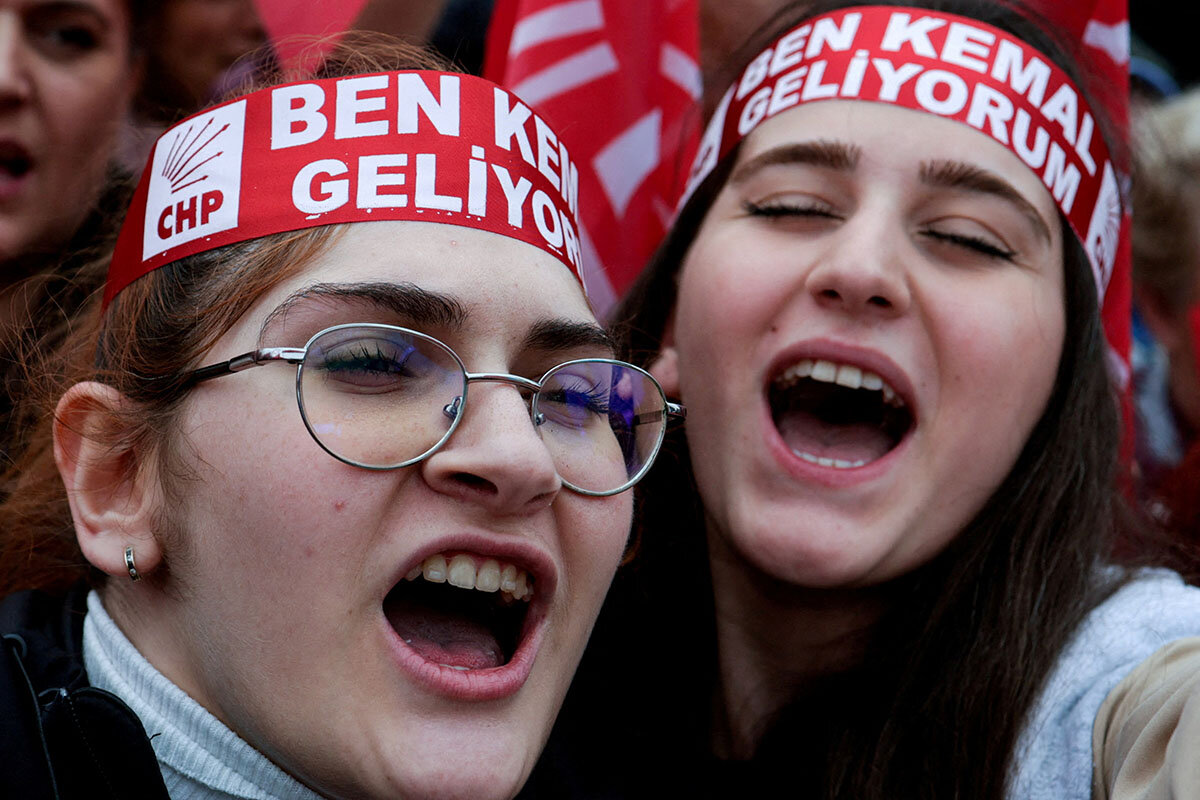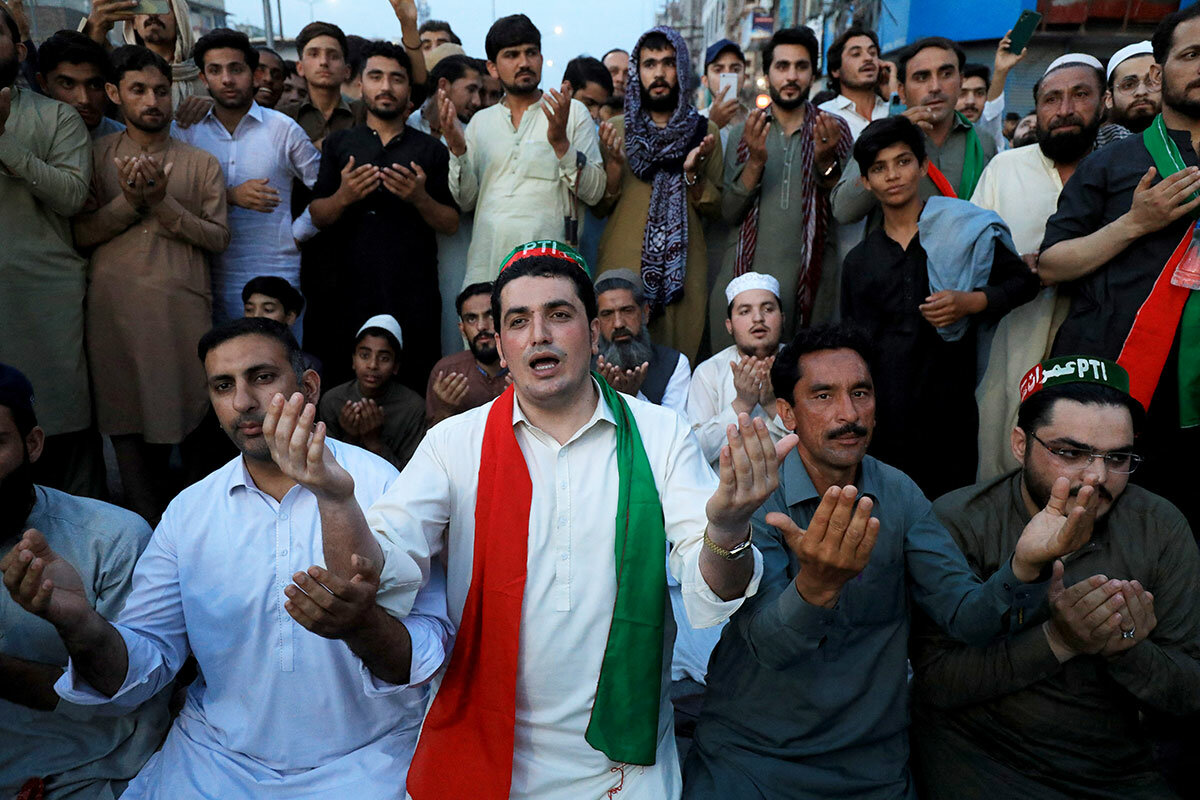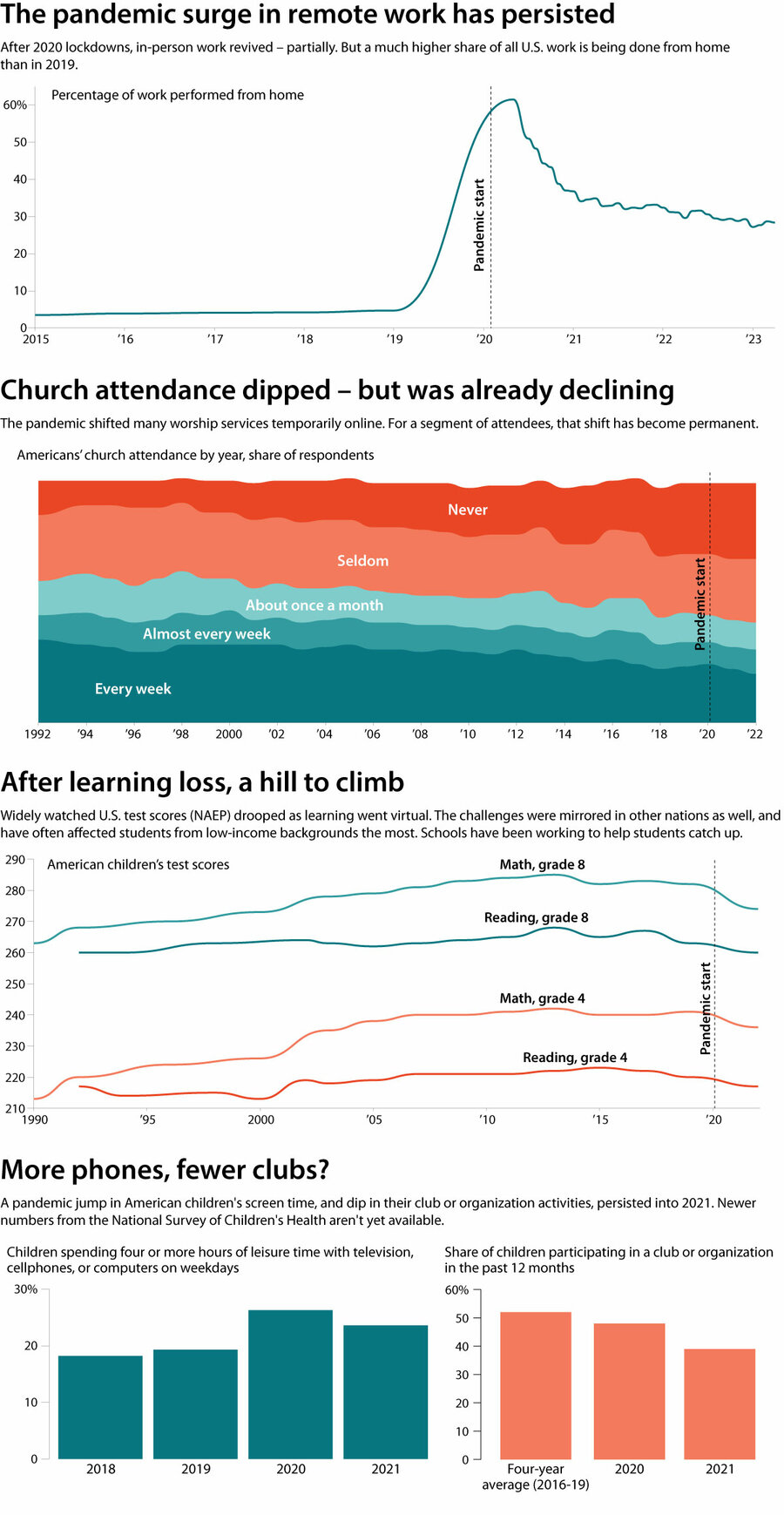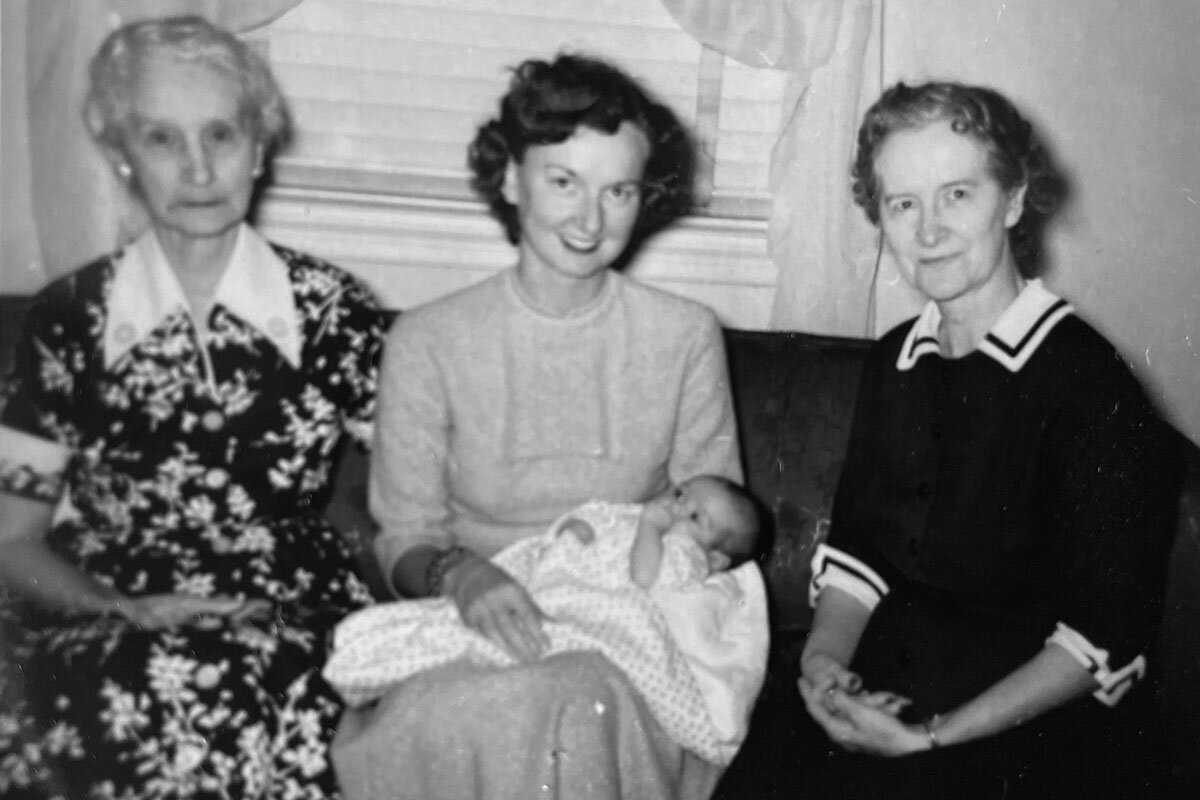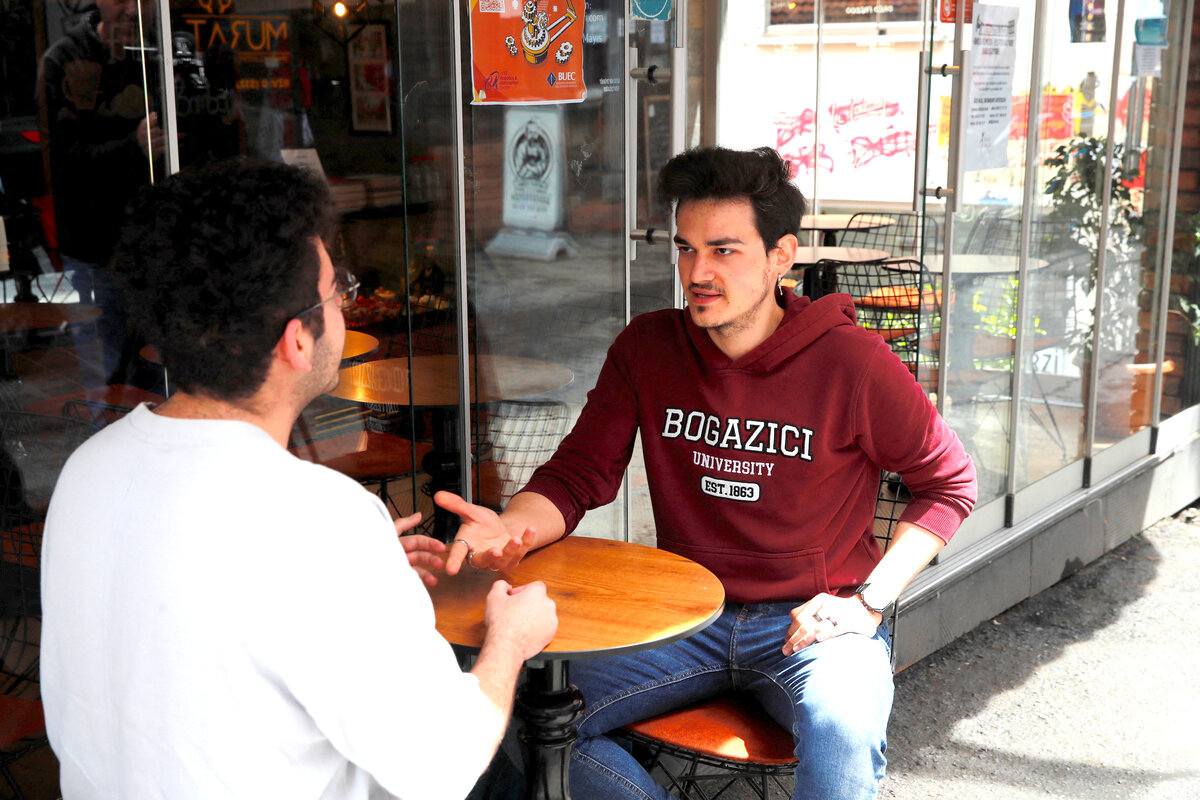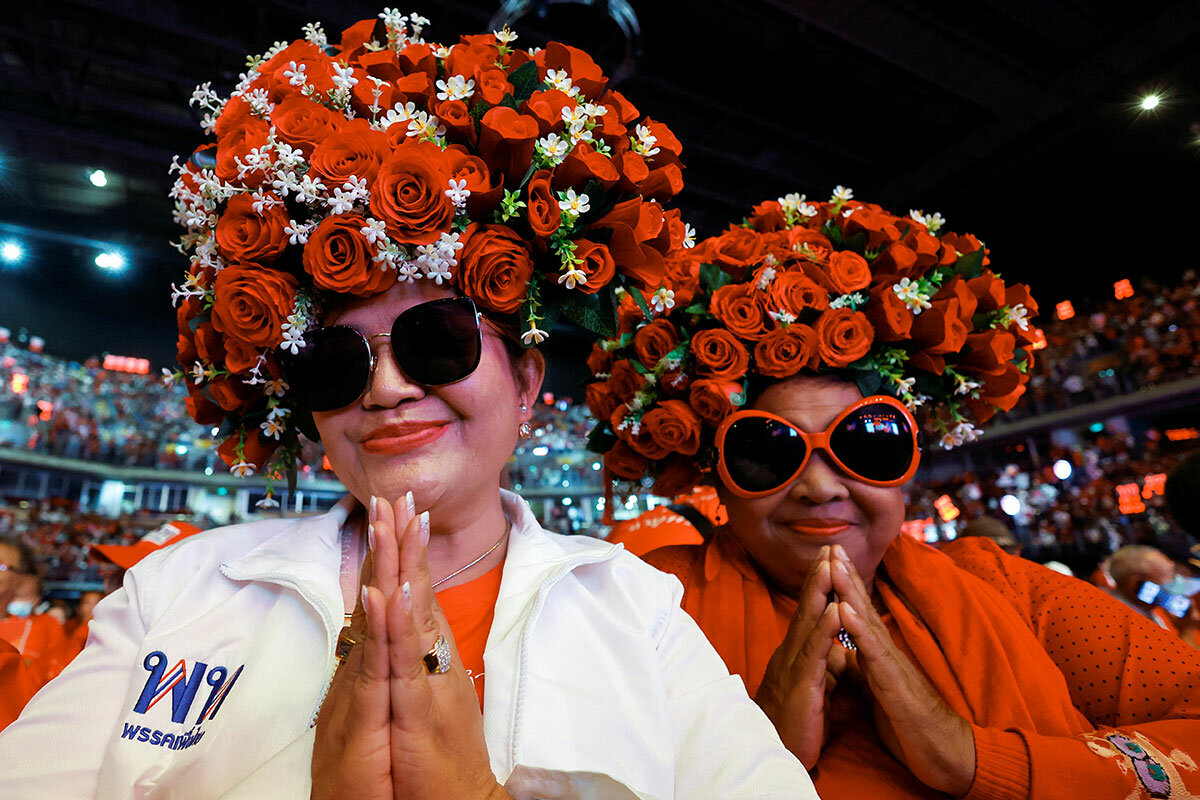In elections Sunday, Turkish President Recep Tayyip Erdoğan faces his stiffest-ever challenge. Young voters, many of whom weren’t born when he first took office, hold his fate in their hands.
Monitor Daily Podcast
- Follow us:
- Apple Podcasts
- Spotify
- RSS Feed
- Download
 Clayton Collins
Clayton Collins
What should we make of a recent report from carmaker Tesla reminding us that, even though its cars have no tailpipes, there are significant carbon emissions associated with getting them built and on the road?
It’s worth thinking about, though there’s a lot more at play when it comes to electric vehicles and CO2 emissions.
The vast network needed to supply raw materials and component parts for EVs makes for difficult accounting. But this time, in Tesla’s report, it was part of the tally. And such “Scope 3” emissions – including those of suppliers – represented the deepest part of the product line’s carbon footprint.
Batteries are a big factor. For 2022, the firms involved in the mining and manufacturing for those accounted for 27% of Tesla’s total emissions, reports Quartz.
But the supply side isn’t the only thing to consider as we think about EVs and making the future work. The demand side – that is, consumer preferences – plays an important role, too.
There are full-size EV pickups that can power homes, and some drivers do need big vehicles. Those are pricier than EVs like the little Bolt hatchback, which General Motors discontinued in favor of pickups.
They’re more resource-intensive, too. An editorial in the Los Angeles Times decries a wave of bigger – and bigger-battery – EVs. (The EV “high end” keeps getting higher.)
The EV story, analysts point out, remains one of net carbon impact. If you size up CO2 emissions over a vehicle’s lifetime, electricity soundly beats internal combustion – especially as more power is renewably sourced and battery technology gets “cleaner.”
High gasoline prices turn heads toward EVs, which can lead to a hunt for affordable EV models. Those are pocketbook motivations. There are planetary motivations, too. Will consumers be mindful about the relative impact of different EV vehicle options?




